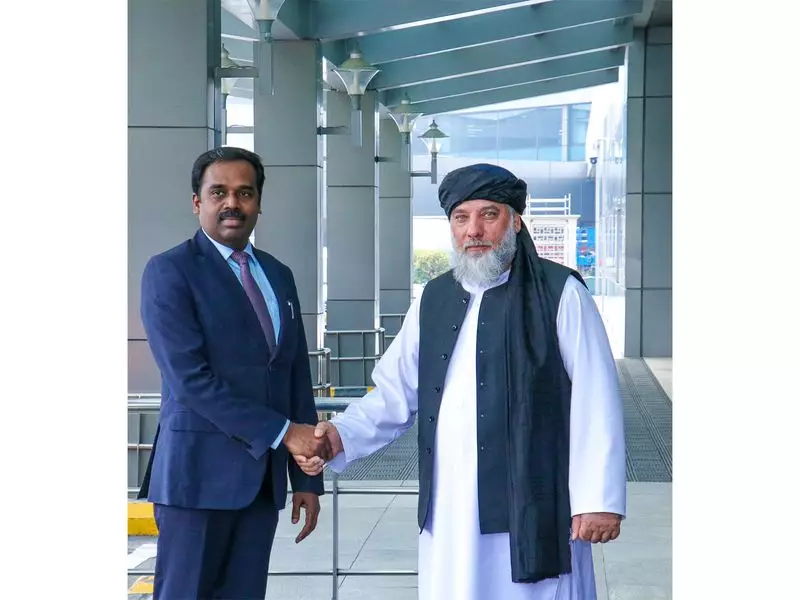
In a significant diplomatic development, Afghanistan's acting Commerce Minister Nooruddin Azizi has arrived in India for an official visit aimed at strengthening trade and investment relations between the two nations. The high-level delegation's arrival marks an important step in bilateral engagement between India and the Taliban-led government in Afghanistan.
High-Level Delegation Arrives for Crucial Trade Talks
The Afghan delegation led by Minister Azizi landed in India on Sunday, comprising senior officials including the acting Minister of Industry and Commerce as well as the head of the Afghanistan Chamber of Commerce and Investment. This visit represents one of the most substantial official engagements between India and Afghanistan since the Taliban assumed power in August 2021.
Official sources confirmed that the delegation's agenda focuses primarily on enhancing trade connectivity and exploring new investment opportunities. The timing of this visit is particularly significant as both nations seek to normalize economic relations despite the complex political landscape.
Strengthening Bilateral Trade and Economic Cooperation
The discussions are expected to cover multiple aspects of economic cooperation, including measures to boost bilateral trade volumes that have seen fluctuations in recent years. Key topics on the table include streamlining trade procedures, addressing logistical challenges, and identifying new sectors for mutual investment.
India has historically maintained strong economic ties with Afghanistan, being one of the largest regional donors to the country. Before the Taliban takeover, India had committed over $3 billion in development assistance for various infrastructure projects, including the construction of the Afghan Parliament building and the Salma Dam.
The current visit follows earlier technical-level discussions between officials from both countries, indicating a gradual normalization of diplomatic and economic engagements. Both sides appear keen to maintain economic channels open despite the political complexities.
Broader Implications for Regional Trade Dynamics
This development carries significant implications for regional trade patterns and economic connectivity. Afghanistan's strategic location as a land bridge between South Asia and Central Asia makes it crucial for regional trade initiatives that India has historically supported.
The visit also signals potential shifts in India's approach toward engaging with the Taliban government, which hasn't received international recognition but controls the country. Economic necessities appear to be driving this cautious engagement, with trade and humanitarian concerns taking precedence over political considerations.
Observers note that successful trade talks could pave the way for more structured economic cooperation, potentially benefiting both nations' economies and contributing to regional stability. The outcomes of these discussions will be closely watched by other regional powers and international stakeholders.
As the talks progress, both sides face the challenge of balancing economic pragmatism with political considerations, particularly regarding international sanctions and recognition issues. However, the very fact that this high-level visit is taking place suggests a mutual willingness to find practical solutions to complex challenges.






